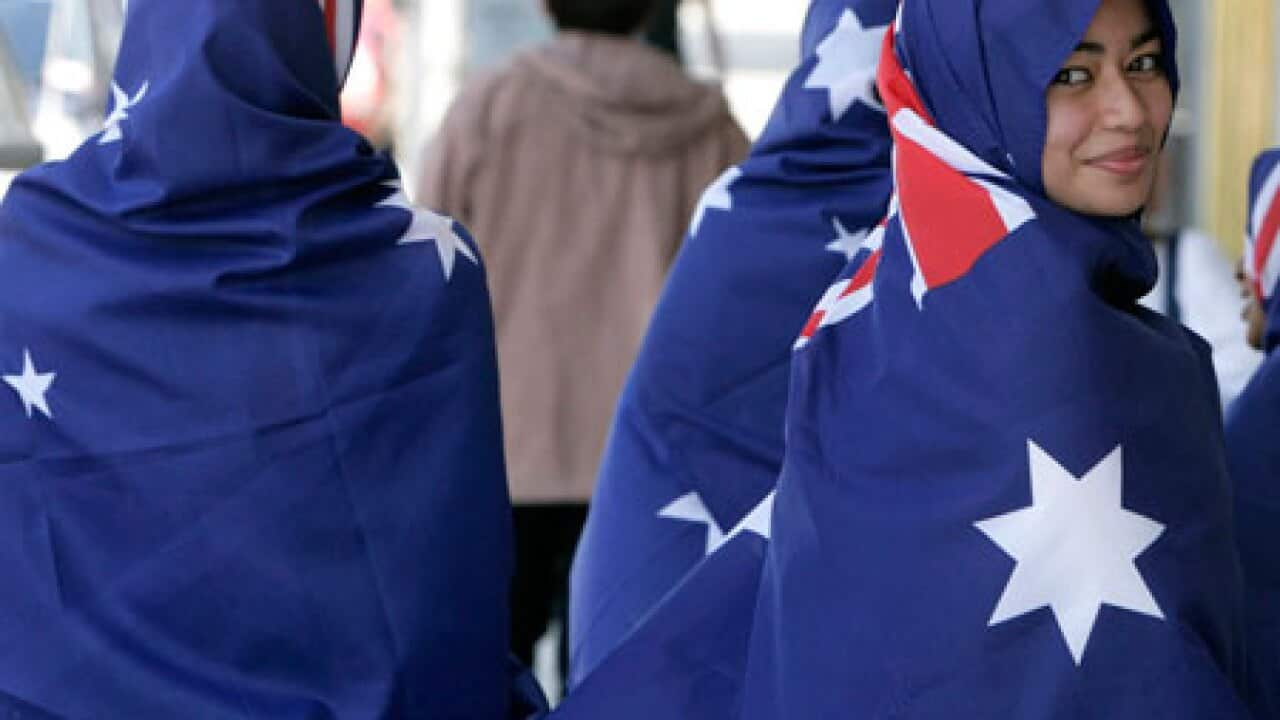Questions are being asked about how the changing make-up of Australia's migrant population is affecting multiculturalism, SBS' Kathy Novak reports.
The debate has been ignited after British Prime Minister David Cameron, and German Chancellor Angela Merkel, both said that multiculturalism had failed.
“Under the doctrine of state multiculturalism, we've encouraged different cultures to live separate lives, apart from each other and apart from the mainstream," Mr Cameron said.
“We failed to provide a vision of society to which they feel they want to belong. We've even tolerated these segregated communities behaving in ways that run completely counter to our values".
The British PM said this is putting young Muslims in particular at risk of radicalisation as they search for an identity within their own communities.
Australia has been a multicultural society for decades.
The 'White Australia Policy' which excluded non-European immigration was in place for a good part of the 20th century, and it wasn't until 1973 that the final vestiges of the policy were removed.
By 1973, the term 'multiculturalism' had been introduced and migrant groups also formed associations to maintain their cultures and languages.
Expenditure on migrant assistance and welfare rose sharply in the early 1970s in response to these needs.
While some Australian commentators and politicians have questioned the success of multiculturalism in Australia, others, such as Victoria's former premier Jeff Kennett, believe multiculturalism in Australia has been working extremely well.
"Most of those who have settled here respect Australia's laws and its traditions and they come to understand the culture, Mr Kennett told SBS Radio.
"Some don't and there may be reasons for that. We have got to work harder at it".
Jeff Kennett says Australian policy-makers were also concerned to ensure that ethnic enclaves were not created, as has happened in countries such as Germany and Britain.
The Federation of Ethnic Communities Councils has been lobbying the government for more action -- especially after Julia Gillard dumped the Multicultural Affairs portfolio from the federal ministry.
"We want the government not only to retain the name multicultural as a portfolio title, we also want a far more engaging and active multicultural policy"
Mr Migliorino says migrants often take less time to feel at home in Australia than those who migrate to European countries.
But he says there are still challenges in Australia, with research showing some second-generation migrants still feel disconnected and don't identify themselves as Australian.
Mr Migliorino says mainstream Australian culture can sometimes impose labels on certain communities.
He says this can encourage people into identifying themselves as something other than Australian, and take on past ethnic conflicts.
"What we want is the creation of an Australia which fundamentally suggests to people,
'Do you belong?' And it's inclusive enough so that people don't feel like they have to hold on to those enmities from the past, because they feel that there is a different way here", he told SBS Radio.
"The more we tag people to being specific to an ethnic group, the more we force them almost to galvanise that as an ethnicity".

